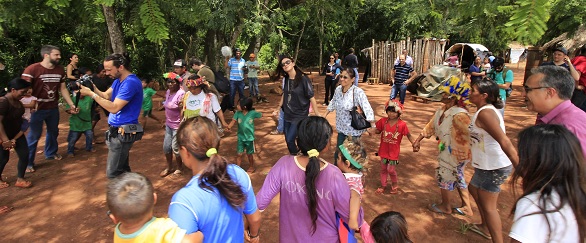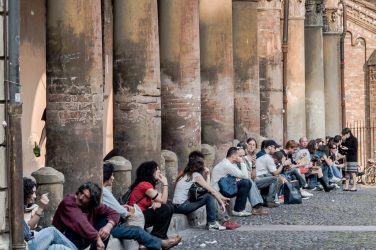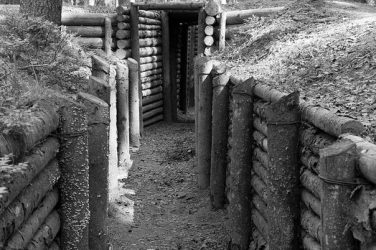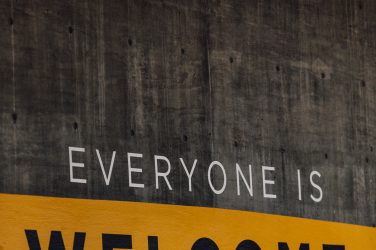On the 6th of December 2016, I found myself in a bus crossing the countryside in the south-west of Brazil, near the border with neighbouring Paraguay. Around me were some Brazilian and European politicians and their assistants, representatives of pro-indigenous NGOs and a young indigenous man who was accompanying us on a visit to different indigenous communities. Looking outside I saw green fields stretching as far as my eyes could see. The green was waving softly and silvery as the winds passed over the plains. It would have been a wonderful sight had we not just passed by a local shop advertising Bayer’s agricultural chemicals. It would have been a beautiful landscape had I not just been told that these weren’t originally plains. A full atlantic forest, a complete ecosystem and its indigenous inhabitants, has largely given way to these endless seas of soy.
On the 17th of December, the Green Left Party of the Netherlands (GroenLinks) kicked off their campaign for the March 2017 National elections in with a video. “Do you also feel like you need to do something?” it read over images of Trump, falling gletschers and other current types of misery. This rather simple question, intended to mobilise a national campaign, struck a chord in me. It is exactly the question me and my friends have been asking each other more and more. What can we do, if “now more than ever” we need to make big changes? Over the last few years we have become used to clicktivism, to sharing articles, to changing our profile pictures. Yet whenever I or anyone else in my progressive bubble contemplates ‘real action’ there is a sense of paralysis.
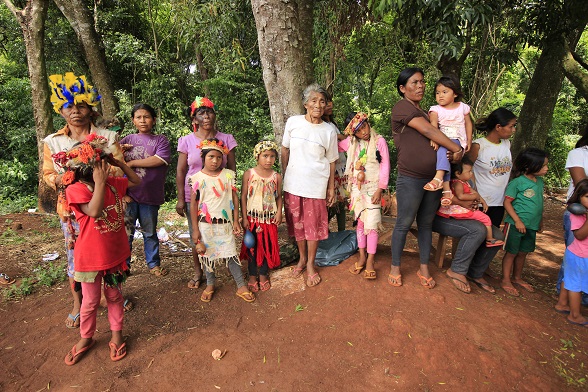
I feel like this is mostly because of a dissonance in proportion. Wars in the Middle East, the election of a racist baby tyrant on the other side of the ocean. the melting of Antarctica, the internet swarming with professional xenophobe trolls, they hardly feel like the type of problems any of us can handle on our own. We then become paralysed by the idea of our own insignificance. Now I will not pretend like I have the solution here. I am not some sort of hero, neither am I a genius. You have probably read enough opinions on how we ended up here and how much worse it may very well get. But how are we going to actually do something about it other than voting our mind in elections and throwing out our opinions on social media? Where can we effect the most change?
This December I had the unique opportunity to take part in a fact-finding mission to Brazil organised by the Unrepresented Nations and Peoples Organisation (UNPO). Three Members of European Parliament joined Brazilian politicians and NGOs to Guarani-Kaiowá indigenous communities to assess the conditions in which they live, and the hardships they go through on a daily basis. The Guarani-Kaiowá find themselves in a situation of continuous violence and repression, as they oppose the powerful Brazilian agribusiness which is eager to use their traditional lands for the production of soy. The indigenous and human rights violations the Guarani-Kaiowá are subjected to – infinitely more complex and dire than I can express here – in themselves are worth raising awareness about. But their specific case also relates to Europe in two ways. The first is that what they are suffering now is a modern form of the aggressive colonialism Europe exported throughout the world centuries ago. The second is that the soy produced on these contested lands is often exported to Europe, and used to raise the cattle we consume.
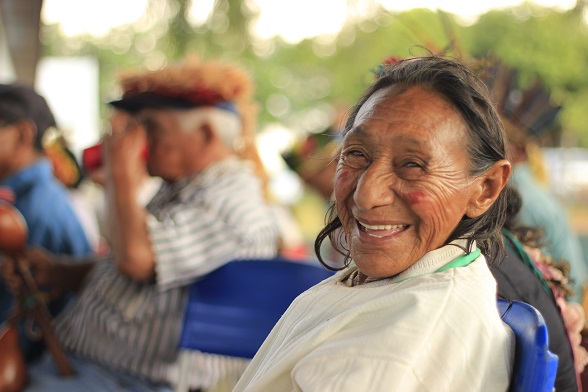
The mission was a much bigger success than I had anticipated. On a string of high-level meetings we ended up meeting the president of the Brazilian senate, arguably one of the most powerful people in the country. It became clear we touched a raw nerve as our activities were closely followed by the regional media, and politicians representing the agribusiness’ interests took time out of their days to discredit and attack the mission’s purpose. Now it is not as if we changed any laws or practices while we were there. In their daily lives the Guarani-Kaiowá will most likely continue facing the same conflict, the same oppression, the same fears.
It feels like it was a one-time opportunity, since it’s not as if I’m suddenly in the position to organise missions whenever I want. Still, the experience has been a huge revelation to me. After spending years in paralysis thinking about what I could do to effect change, I suddenly found myself in a position where I could lend my support to some real action. Ever since I returned, I am also way more aware of all the small things we can do in our daily lives to somehow be part of change for the better.
In my view, the most important battles that our generation have to fight are for the survival of the planet and for the equal and respectful treatment of all human beings. No matter what beliefs we hold, either we or people around us will probably get children. It seems no more than reasonable to work for those children to grow up with respect for themselves, respect for one another and respect for the world they inhabit. I want them to get equal opportunities in their pursuit of happiness. It is pretty easy seeing the world right now to dismiss ideals such as the above as naive. Many of us have cynical voices in our heads telling us a world like that will never be achieved. Still I think this does not absolve us of the responsibility to strive towards something better.


